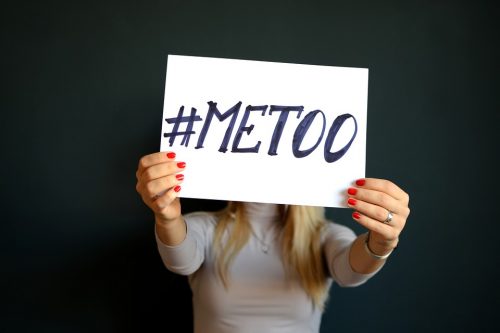
#MeToo, the hashtag that blew up the Internet last fall, has spurred social movements worldwide all aiming to raise awareness of sexual misconduct and gender-based violence.
University of Guelph Prof. Candace Johnson is investigating various forms taken by the #MeToo movement, each with its own message pertinent to local issues facing women around the globe.
“The #MeToo movement is important because it has recognized the ways in which women, myself included, have endured sexual harassment and worse,” said the political science professor. “It has begun to measure and therefore make visible women’s experiences of harassment and abuse, and it has inspired action around the globe to respond to the growing evidence of gender injustice.”
Germany, Italy, France and Denmark are among countries that have taken up the global #MeToo movement. Others, such as Argentina, have started their own movements.
Johnson and researcher Ana María Méndez Dardón are comparing the #NiUnaMenos movement begun in Argentina with #MeToo.

Loosely translated as “not one (woman) less,” #NiUnaMenos focuses on gender-based violence and specifically femicide, particularly gender-related murder of a woman or girl by a man.
#NiUnaMenos began as a feminist social movement in Argentina and quickly spread across Latin America thanks to social media, said Méndez Dardón, a human rights lawyer in Guatemala.
She and Johnson are comparing how various movements frame their own identities, what resources they have for mobilization and how these movements affect the regional political agenda.
Méndez Dardón said the #NiUnaMenos movement addresses the most horrific forms of gender-based violence.

“Women in North America suffer more sexual assault, whereas in South America we don’t just suffer sexual assault but femicide. It reflects the specific needs of Latina women.”
Johnson said North Americans need to recognize how trade, business and politics affect women in other regions.
“As Canadians and feminists, we have to be aware of the impact we have in other countries,” said Johnson, who has worked extensively in Latin America. “In Guatemala, for example, Canadian companies have a significant interest in mining, and those mining operations do have an impact on the women that live in those areas.”
Johnson will return to Guatemala this summer to continue her work with Méndez Dardón and women’s groups.
“The #MeToo movement, as well as the other movements that have grown from it, is a cultural reckoning that will hopefully result in significant changes.”
Contact:
Prof. Candace Johnson
cajohnso@uoguelph.ca